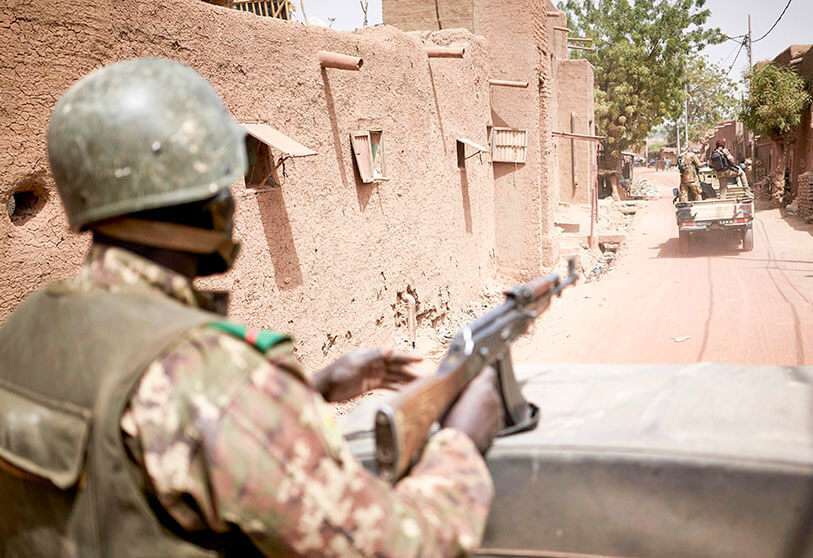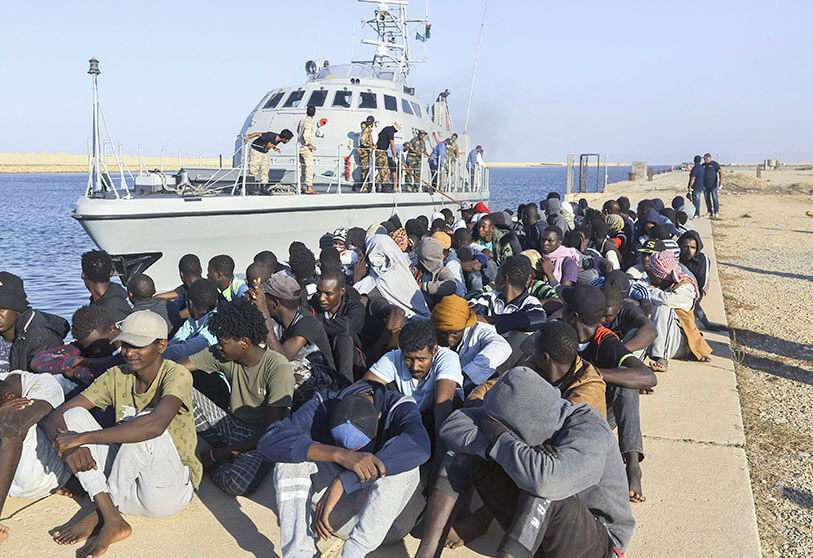Sahel stability depends on progress in Libya

The Sahel, an area considered to be Europe's true southern border, is the region of the world with the highest concentration of countries in conflict. It is characterised by being a very unstable area, made up of nations led by weak governments that can barely exercise control and ensure stability. Some nations such as Chad, Mali or Burkina Faso are the scene of numerous armed conflicts.
Social unrest, water and food shortages and the presence of terrorist groups have made the Sahel one of the poorest and most deprived areas on the planet. The EU argues that a stable environment in the Sahel can only be achieved if Libya addresses the economic instability that has been present for the past 10 years.
The EU Special Envoy for the Sahel, Emanuela del Rey, said that "without stability in Libya, there will be no stability in the Sahel region, and without stability in the Sahel region, Libya will not be stable". Last Monday she met with Stefano Torquetto, commander of the European air and naval intervention "IRINI", at the operation's headquarters in Rome.

This operation aims to implement UN provisions, monitor the arrival of weapons on Libyan territory and provide stability and security in the Mediterranean Sea. Both believe that the Sahel region is fraught with numerous major crises in which armed groups or security companies are deployed. For his part, Torquetto considers EU intervention and the degree of correlation between the two African nations to be crucial.
IRINI means peace in Greek, and that is precisely what the EU is seeking in this part of Africa. The mission can conduct inspections of ships off Libya if there is any suspicion that they are carrying weapons material. It also has the competence to gather information on illegal oil exports and contribute to the configuration of a coast guard to help with policing.
The weakness in combating arms trafficking from Libya was considered by Niger's President Mohamed Bazoum to be one of the most important factors in the spread of terrorism. Nigeria's leader Muhammadu Buhari sees instability in Libya as affecting other countries in the Sahel region, and welcomes the intervention of neighbouring nations.

Attacks by terrorist groups are on the rise, especially in the so-called "tri-border" area (Mali, Burkina Faso and Niger). In April and May 2021, Burkina Faso was the victim of 22 and 37 attacks, respectively, and in June 2021, more than 120 people were killed in the northwest of the country. This has become the most serious jihadist attack ever recorded in Burkina Faso.
The Support Group for Islam and Muslims (JNIM) and the Islamic State of the Greater Sahara (EIGS) are the most active extremist military organisations in the Sahel, and are strengthening their rivalry with clashes for jihadist power in the region. These attacks have led to an increase in irregular migratory journeys to Europe via Libya, leading to an intensification of the Libyan crisis.
The Sahel is facing one of the world's most serious and neglected humanitarian crises. This has resulted in more than 2.5 million people being forced to flee their homes; women and children are being hit the hardest. The impact of the coronavirus (COVID-19) has, in turn, exacerbated the health emergency by affecting areas hosting refugees.

One of the most important outlets for illegal immigration is southern Libya, and it is also considered an important corridor for human trafficking and arms smuggling. Organised gangs work to move individuals from African countries to ports in Libyan cities and towns such as Tripoli (capital) or Zuwara (northwest).
Many of Libya's problems remain unresolved despite attempts after the fall of Muammar Gaddafi, the dictator who ruled the country from 1969 to 2011, when he was assassinated. Skyrocketing prices, high unemployment, ongoing human rights violations and undemocratic measures led to the outbreak of the Arab Spring and, later, the first civil war.










